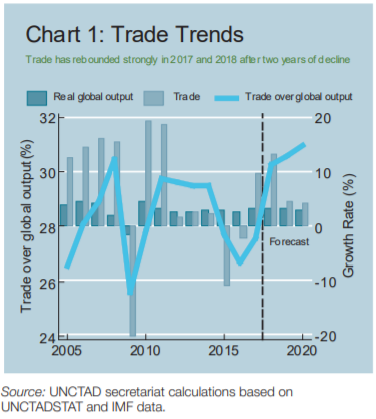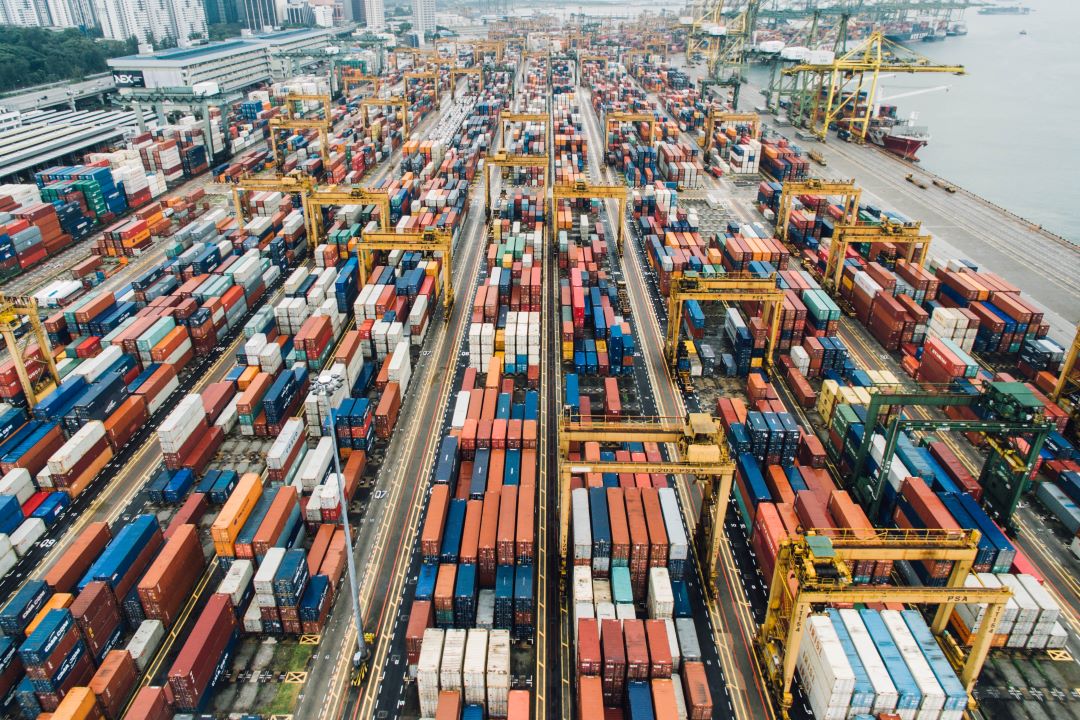Javier Kuhlmann, Commercial Director of Cointer and Opportunity Network member, gives his advice on key trading elements CEOs can’t miss when building a successful trade operation.
A decade ago, finding bananas from Costa Rica, Colombia or Ecuador in a European supermarket wasn’t as common as it is today. This is a consequence of the increase of successful international trade operations.
Foreign trading allows countries and business owners to expand their markets in ways that wouldn’t have been possible to do so domestically. As technological advances keep popping up every day, this expansion of products and services just keeps growing, helping make this trading more achievable, profitable and ambitious.
According to the Key Statistics and Trends in International Trade 2018 by the United Nations, international trade growth has increased steadily since 2015. In 2017, growth averaged about 10%, even peaking at 12% in 2018. Even though this year has presented some fluctuations, it is predicted that this trend will keep on in the future.

For foreign trade companies, building a solid strategy is crucial for making worthy profits and avoid setbacks in its operations. As there are so many goods and products to export and/or import, every operation has different requirements but in general, these strategies require several key elements that CEOs can’t miss.
Cointer is a Spanish company with over 16 years of experience operating in Chile. It has invested in public tenders such as airports, roads, bridges, and terminals. It also is heavily involved in the logistics sector, acting as a logistics facilitator of foreign trade. Its contribution to the country’s development is undeniable and demonstrates a good example of how to have a well-elaborated strategy.

Javier Kuhlmann is the Commercial Director in charge of finding new businesses and developing a strategic plan for the group’s companies which include Zeal, Sauce, Ptla, Lamaignere, and KLA. The latter works as a subsidiary that provides commercial advice and logistical supervision in foreign trade deals. When considering what products to import, “the decision depends solely and exclusively on the needs of each one of them,” he says.
After working for more than 30 years in this industry, he has developed clear expertise on the topic. He described the process of establishing a trading strategy that includes all stages for an import, including product search, supplier verification, sample shipment, inspection coordination, purchase negotiation, insurance contracting and logistics supervision. For him, there are 4 elements that have to be prioritized in order to have a successful import/export operation.
1. Quality and Delivery Time of the Product
If the products being imported have poorer quality than those available in the local market, then there’s no point in importing them as it is very likely that they won’t reach the expected sales. Product quality must either be better than the entering market, or be able to compete with price instead while still being profitable.
The timing with which each of the products is delivered can derail the entire logistics chain, so it’s something that must be mutually agreed upon and non-negotiable.
2. Relationship with the Supplier
“When importing, connections are by far the most gravitational, since they will depend on trust and credibility between the buyer and seller,” said Javier.
Establishing a solid relationship with your supplier determines a successful trading operation. Although distance, cultural differences, and different markets play a decisive role in establishing those ongoing relationships, here is where technology can be relied on.
“Definitely today, technology platforms such as Opportunity Network are essential for the expansion and dissemination of new businesses,” he affirmed. “When you negotiate with vetted possible partner”s, deals are more likely to be made. You know these people can be trusted.
“Someone willing to give support on everything you might need and someone reliable is what makes executives seal the deal.”
3. Price and Payment Conditions
Product pricing, landed cost, financing options, short/medium/long term financing, government loan, angel financiers, and any other specifications about money should be clear, agreed upon, and signed on paper. In this way, both parties know exactly what was agreed upon and, in case there is a misunderstanding, a physical contract is available to clarify doubts.
4. Logistic Process
In domestic business, things are easier as buyers and suppliers often speak the same language, and the law is applied the same way. However, in international markets, legal, political, and economic practices may be different.
According to Kuhlmann, “Perhaps the main difficulty in a process of negotiation, trading or market prospecting is the cultural aspect and regulations of public governments.”
Having a clearly defined shipping method & timeline, container requirements, measurement conversion system, transportation and government documentation, and customs requirements, among others, are things that can’t be missed. Everything needs to be revised twice, three times and even four, to guarantee that your trading will not have any setbacks.
Every successful exporter or importer must discover the relevant factors and strategies for their chosen products and market. So, these 4 elements must be prioritized to avoid any mishap in the trading operation.
As for Javier Kuhlmann and his company in Chile, they will keep an eye open to business opportunities, to expand their strategic position both in and outside of Chile.




